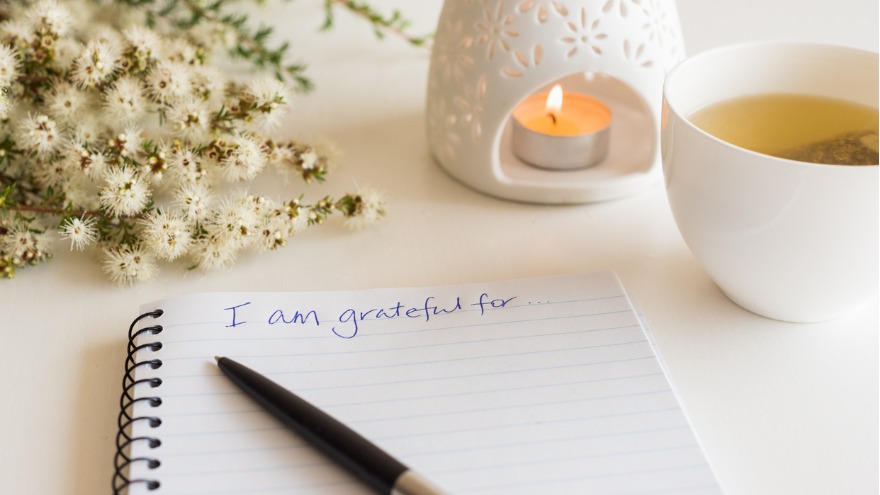Embrace the health benefits of gratitude
“Expressions of gratitude are more than nice gestures and ways to win friends and influence people.”
My mother is big on thank-you notes. The old-fashioned handwritten kind you put in those increasingly neglected blue boxes from the U.S. Postal Service. “They’ll remember you,” she would always say. “You’ll stand out.”
Turns out these expressions of gratitude are more than nice gestures and ways to win friends and influence people. They’re incredibly healthy for you. In this month of Thanksgiving, our annual ritual of gratitude (and overeating, but that’s another story), it’s worth reviewing the benefits of saying a simple thanks.
Snooze better. Gratitude journals were all the rage for a time, and many still record their daily interactions and count their blessings. Others favor dropping into dreamland by mentally reciting a litany of those who made their day—or life itself—go better and sending their thanks into the ozone. In fact, a study published in Applied Psychology Health and Well-Being, a peer-reviewed academic journal, found that doing just that actually improves sleep.
Improve mental health. Robert Emmons has been called the world’s leading scientific expert on gratitude. A professor of psychology at University of California, Davis, he’s founding editor-in-chief of The Journal of Positive Psychology. Emmons has led many studies on the link between gratitude and well-being that show that the act of being grateful enhances happiness and reduces depression. “Gratitude blocks toxic emotions, such as envy, resentment, regret and depression, which can destroy our happiness,” he says. Grateful people tend to feel more empathy toward others.
Improve mental resilience. In Psychology Today, Amy Morin, a psychotherapist, mental strength trainer and TEDx speaker, notes that research has shown expressing gratitude may help in overcoming trauma. She cites a study that found being grateful for what was still right with the world and your own life was a major factor in fostering resilience following the terrorist attacks on September 11. A regular gratitude practice can reduce stress, burnout and symptoms of post-traumatic stress disorder (PTSD).
Improve physical health. Morin also references a 2012 study that found grateful people are less likely to suffer from aches and pains and in general say they feel healthier.
The bottom line: Being grateful costs nothing and gives a lot. Thank you, Mom.
Get into the Gratitude Habit

The website Healthline offers tips on how to make gratitude a regular part of your day.
📝 Journaling: Jot down a favorite moment, describe a special person in your life or things you’re grateful for that day. No journal? Thumb a note into your phone.
🗺️ Mapping: Create a visual mood board (whiteboard, cork board, etc.) somewhere you’ll notice it regularly to remind you to be grateful for what that day brings.
✏️ Jarring: When you feel gratitude about someone or something, write it down and put the folded piece of paper into a jar. Whenever your mood turns blue, reach in and retrieve one note to remind you there is goodness in the world.
🧘 Meditating: Morning may be the best time for gratitude meditation—it starts off the day on a positive track. Visualize and reflect on the good things and people you’ve known. Plus: Free Meditation Apps for Event Planners on the Go
🙏 Praying: It doesn’t have to be to a specific higher power, belief or tradition; simply giving thanks for being alive is enough.
🙋 Volunteering: This is a practical way to give back, showing gratitude for all you have and are by helping those in need. Plus: How to Choose the Right CSR Activity for Your Group




